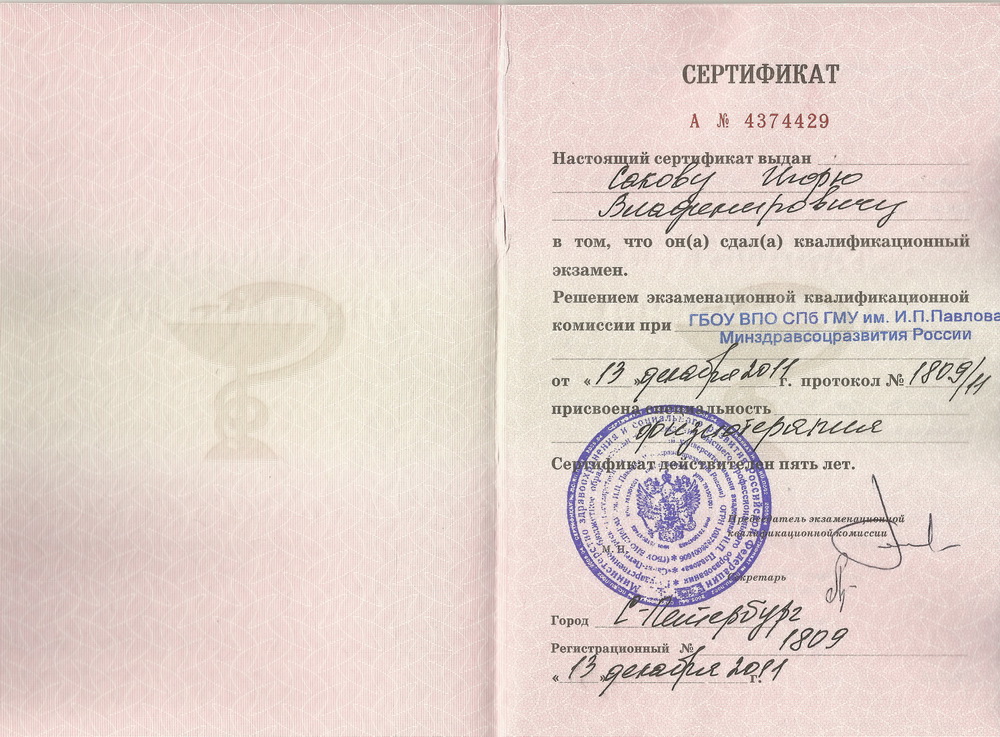Aromapsihologiya I V Sakov
Buy Aromapsihologiya a practical guide / Aromapsikhologiya prakticheskoe posobie by Sakov I.V. (ISBN: 609) from Amazon's Book Store. Everyday low prices and free delivery on eligible orders.
Appellant Ester Adut appeals from an order granting Joshua Sakov $500 in attorney fees. 1 Appellant has failed to include in the record a copy of the motion that precipitated the order she now contests. Given the state of the record, we are unable to conclude that the trial court erred in awarding the attorney fees.
Accordingly, we affirm. FACTUAL BACKGROUND AND PROCEDURAL HISTORY Our recitation of the facts is constrained by the paucity of the record submitted in conjunction with this appeal. The underlying case is a marital dissolution proceeding. It appears that sometime prior to May 15, 2007, appellant filed a motion to set aside certain orders made by the trial court following a hearing held on January 5, 2007. On May 15, 2007, Sakov filed a responsive declaration alleging that appellant's motion to set aside was frivolous. The declaration includes a request for attorney fees. The accompanying proof of service states that Sakov's declaration was served on appellant on May 15, 2007, by leaving a copy on her front doorstep.
At the hearing on May 23, 2007, the court denied appellant's motion to set aside, stating: 'The court has completely responded in the past to the request for a further statement of decision and objections to the statement of decision on the issue as to whether [appellant's] request for spousal support was heard and ruled on. It was based on the testimony presented and the pleading. Elektronnaya pochta shtaba vch 06705 internal. The court will order $500 in fees to Mr.
Sakov on this motion.' On June 20, 2007, the court issued its formal order denying appellant's motion and awarding the attorney fees in favor of Sakov. The order contains the notation 'Signed after review of [appellant's] objection.' This appeal followed.
DISCUSSION We first summarize the basic principles of appellate review. An appealed judgment or order is presumed to be correct, and '`All intendments and presumptions are indulged to support it on matters as to which the record is silent, and error must be affirmatively shown..' [Citations.]' ( Denham v. Superior Court (1970), 564.) An appellant has the burden of overcoming this presumption by an affirmative showing of error on an adequate record.

Moses (2001), 1140-1141.) 'Failure to provide an adequate record on an issue requires that the issue be resolved against [appellant].' ( Hernandez v.
California Hospital Medical Center (2000), 502.) Furthermore, error alone does not warrant reversal. 'It is a fundamental principle of appellate jurisprudence in this state that a judgment will not be reversed unless it can be shown that a trial court error in the case affected the result.' ( In re Sophia B. (1988), 1439.) ' `The burden is on the appellant, not alone to show error, but to show injury from the error.' ' ( Douglas v. Ostermeier (1991), 740, citation omitted.) 'Injury is not presumed from error, but injury must appear affirmatively upon the court's examination of the entire record.'
( In re Marriage of McLaughlin (2000), 337.) 'Only when an error has resulted in a miscarriage of justice will it be deemed to be prejudicial so as to require reversal.' Mission Ready Mix (1990), 114.) A miscarriage of justice is not found 'unless it appears reasonably probable that, absent the error, the appellant would have obtained a more favorable result.' Medical Board (1993), 1841.) The record in this case is sparse, consisting primarily of the register of actions, which takes up 110 pages out of the 123-page clerk's transcript. The record also includes the reporter's transcript of the May 23, 2007 hearing.
In addition, we have granted appellant's motion to augment the record to include Sakov's responsive declaration filed on May 15, 2007. The record does not include appellant's motion to set aside. 2 Based on Sakov's declaration, it appears that the request for fees and the trial court's award were premised on the provisions of Family Code section 271. 'Subdivision (a) of Family Code section 271 permits a trial court to award attorney fees and costs as a sanction based on `the extent to which the conduct of each party or attorney furthers or frustrates the policy of the law to promote settlement of litigation and, where possible, to reduce the cost of litigation by encouraging cooperation between the parties and attorneys.' The party requesting an attorney fees award under section 271 is not required to demonstrate financial need for the award.
[Citation.] `[S]ection 271 sanctions have been upheld for 'obstreperous conduct which frustrated the policy of the law in favor of settlement, and caused the costs of the litigation to greatly increase..' ' [Citation.]' ( In re Marriage of Lucio (2008), 1081-1082.) Appellant raises numerous procedural challenges to the attorney fee award. For example, she claims Sakov's response should have been stricken because it was not signed by his attorney. She also claims the court improperly failed to consider the parties' income and expense declarations, and that Sakov's declaration was not properly served and was filed after the time specified by Code of Civil Procedure section 1005, subdivision (b). She does not challenge the substantive basis for the court's ruling. We first observe that decisions of the California and federal courts hold that 'a signature defect is a mere technical irregularity.' ( Board of Trustees v.